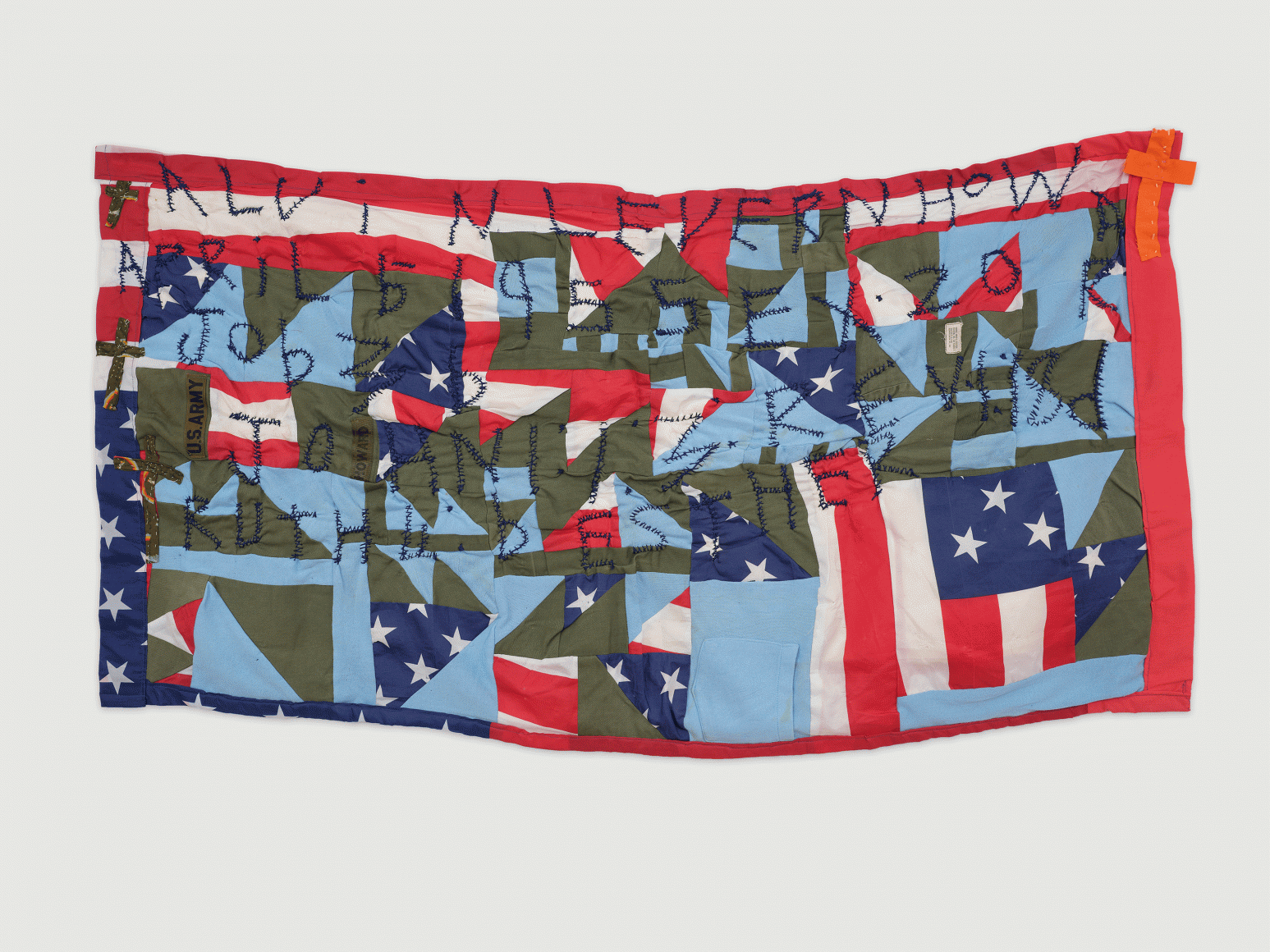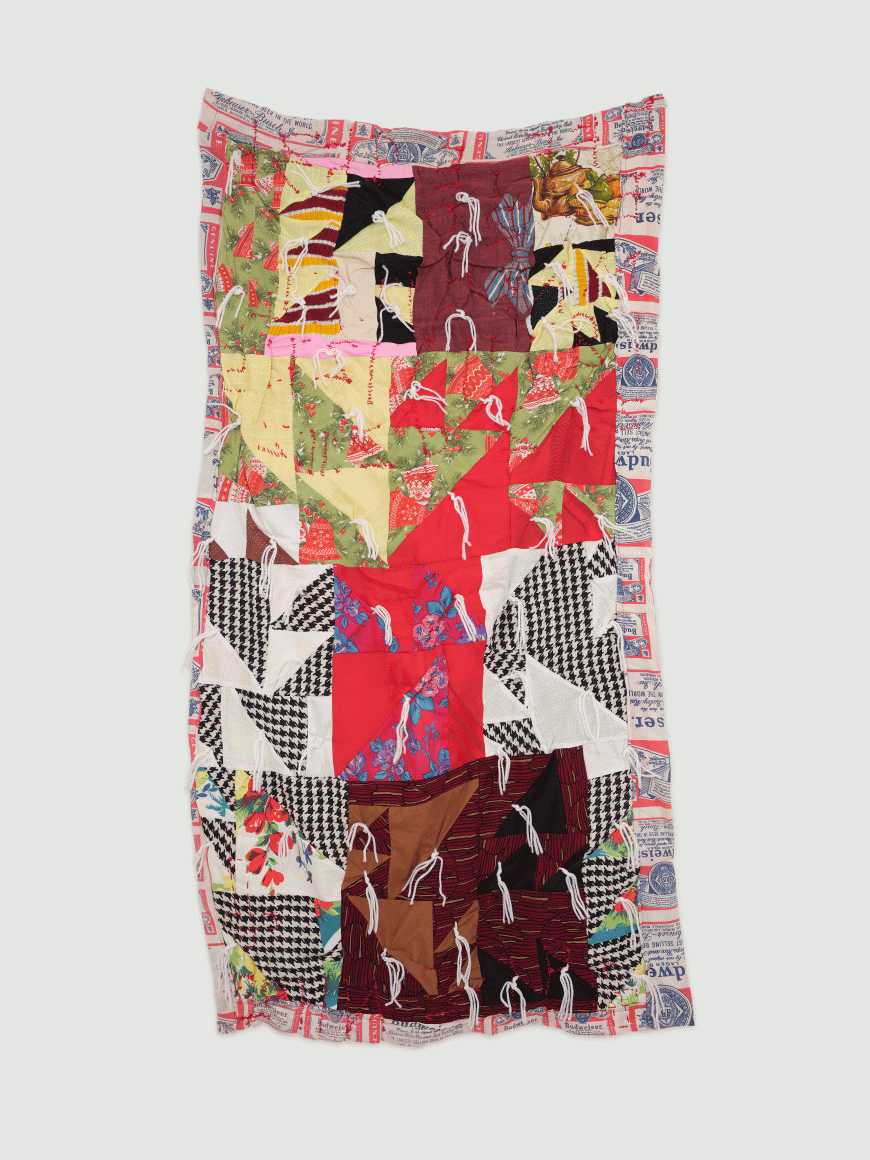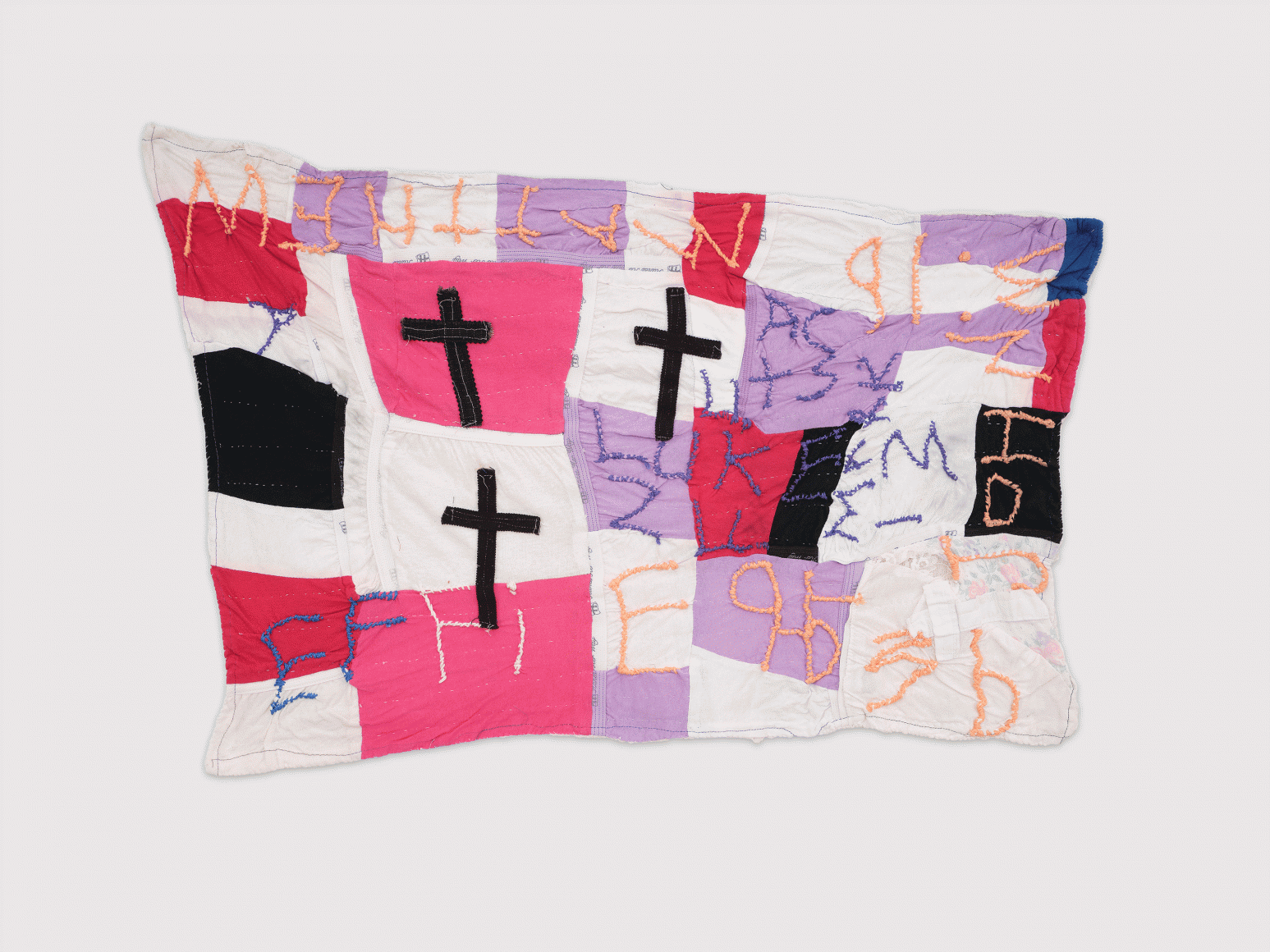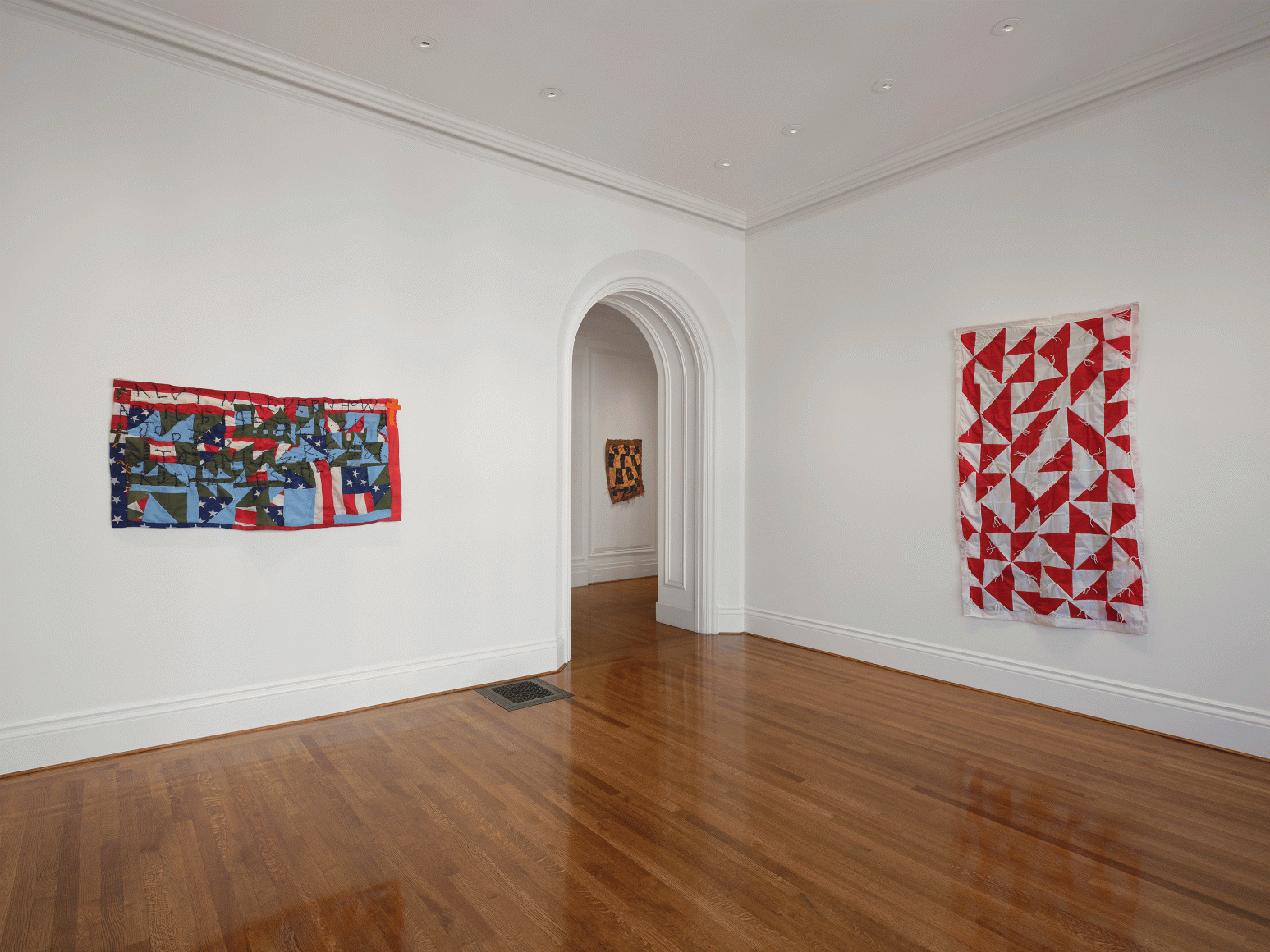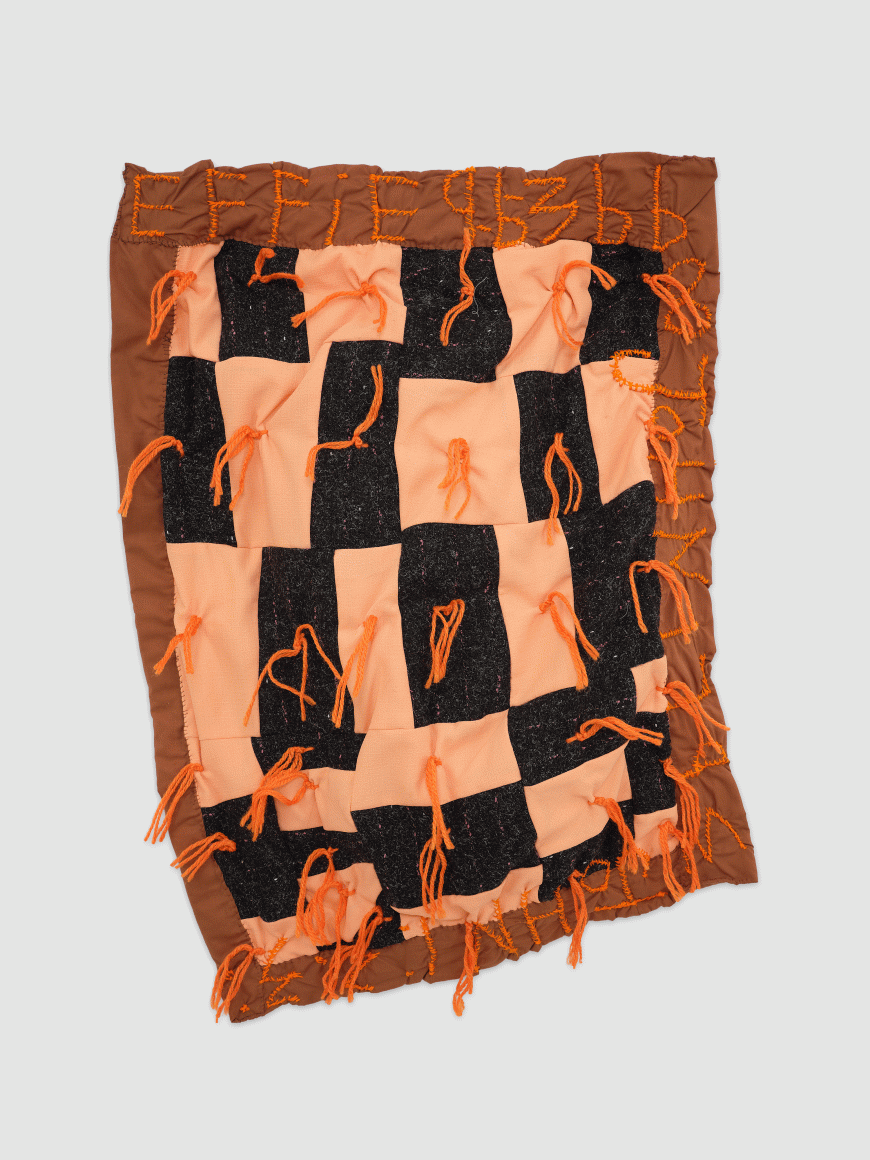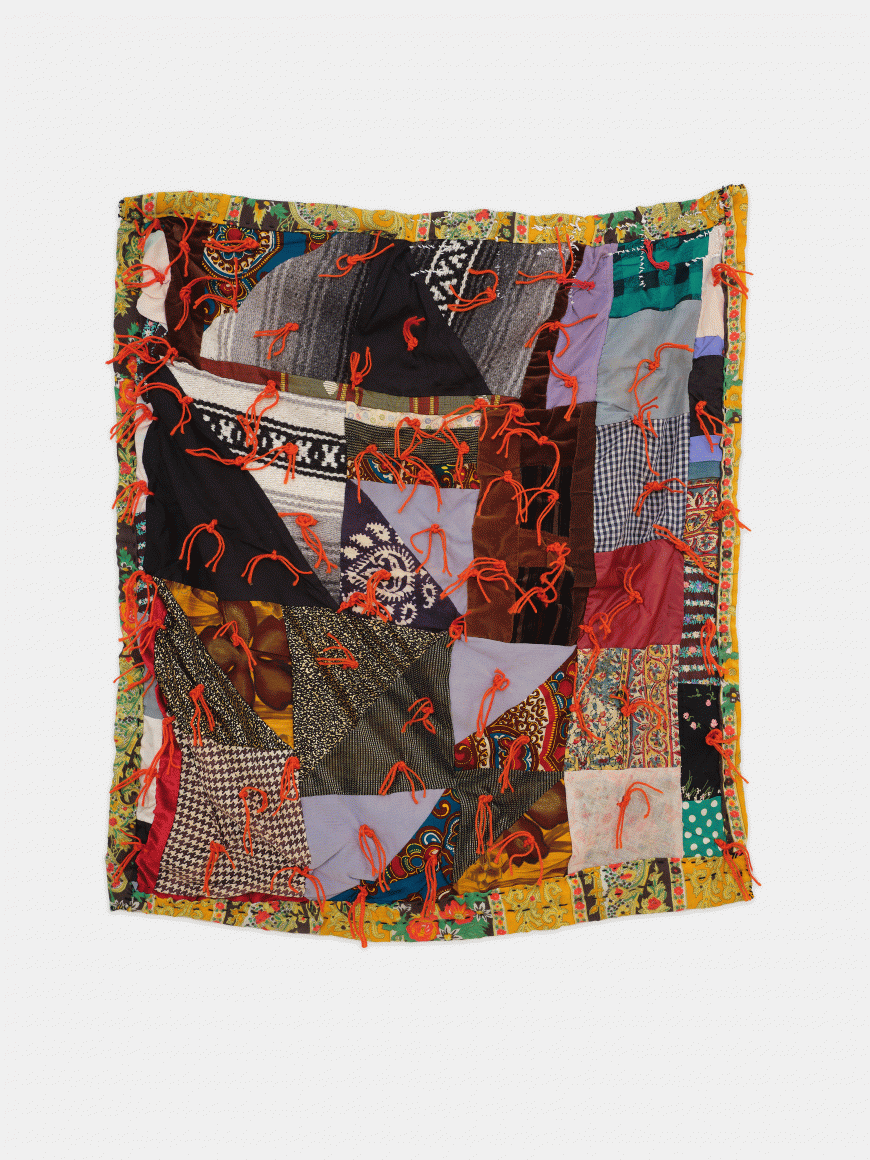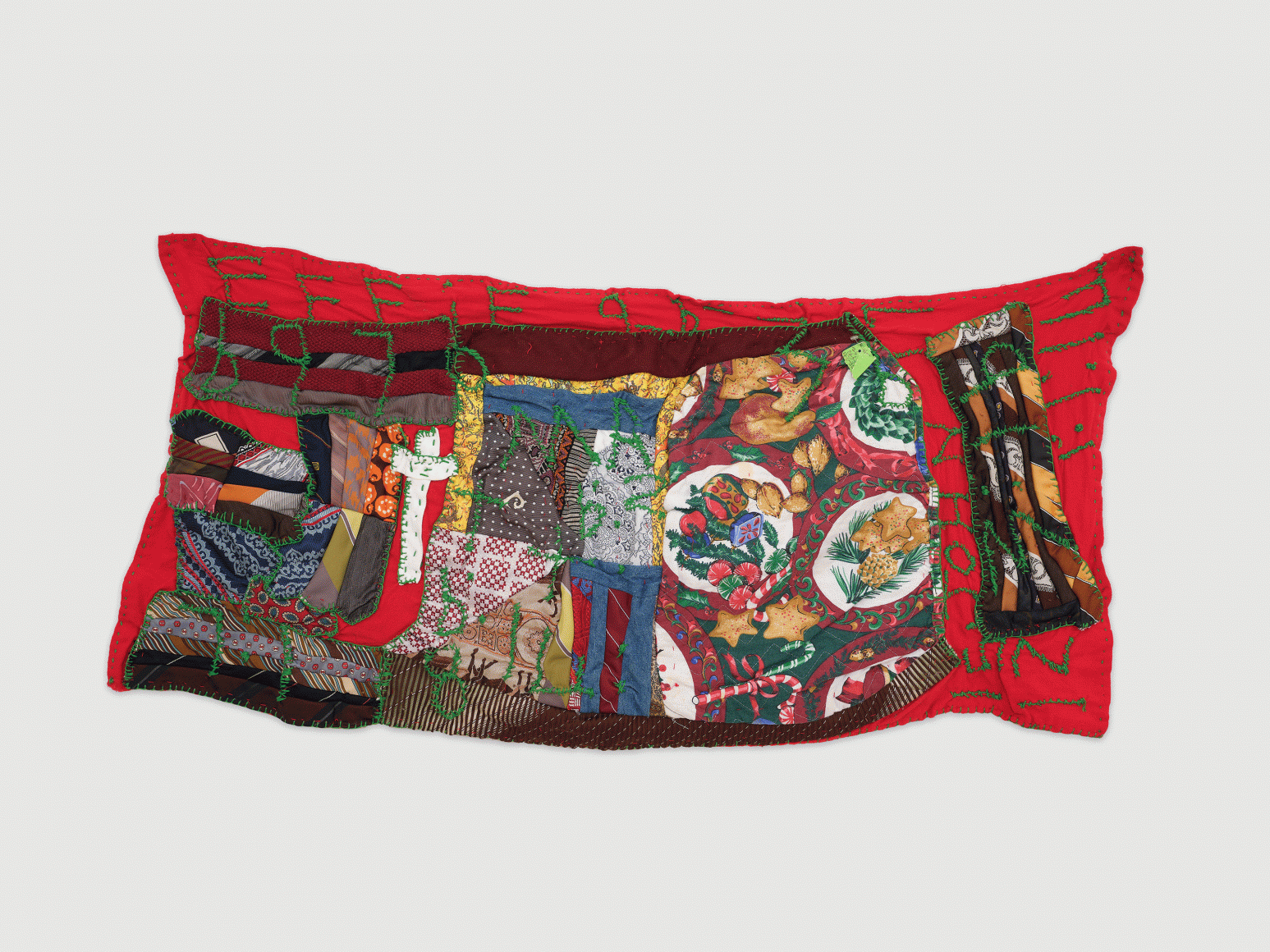American artist, Rosie Lee Tompkins (1936–2006) is considered one of the greatest quiltmakers of all time and one of the century’s greatest artists. The seven artworks on view at Anthony Meier Fine Arts date from 1974 to 2006, the year of the artist’s death. This significant exhibition coincides with a major retrospective of her work at the Berkeley Art Museum and Pacific Film Archive, and includes a newly commissioned essay by Lawrence Rinder, the longtime champion of Tompkins and former Director of the Berkeley Art Museum and Pacific Film Archive.
Rosie Lee Tompkins is the pseudonym of quilter Effie Mae Howard, who carefully guarded her privacy after her rise to national prominence in the late 1990s. Born on September 6, 1936 to a sharecropping family in southeastern Arkansas, she learned quilting from her mother as a child but did not begin to practice the craft seriously until the 1980s, when she was living in the Bay Area city of Richmond. Tompkins was a devout member of the Seventh Day Adventist Church, and credited God with her uncanny sense of color. Many of her quilts were made with family members or friends in mind, and can be seen as prayers on their behalf, including her sons.
Few of Tompkins’ quilts conform to the traditional scale of a bed covering, a byproduct of the conceptual logic inherent in each piece. Her quilts are characterized by the variation in scale of the triangles and squares used in her patterns, creating “asymmetrical forms that pull, crumble, and bend,” says Rinder. Tompkins “transformed everything she touched with her improvisatory piecing and unerring sense of color, composition and scale,” notes critic Roberta Smith. “In the still-unfolding field of African-American quilt-making, she has no equal.”
Rosie Lee Tompkins is on view through February 19 @ Anthony Meier Fine Arts 1969 California Street, San Francisco

